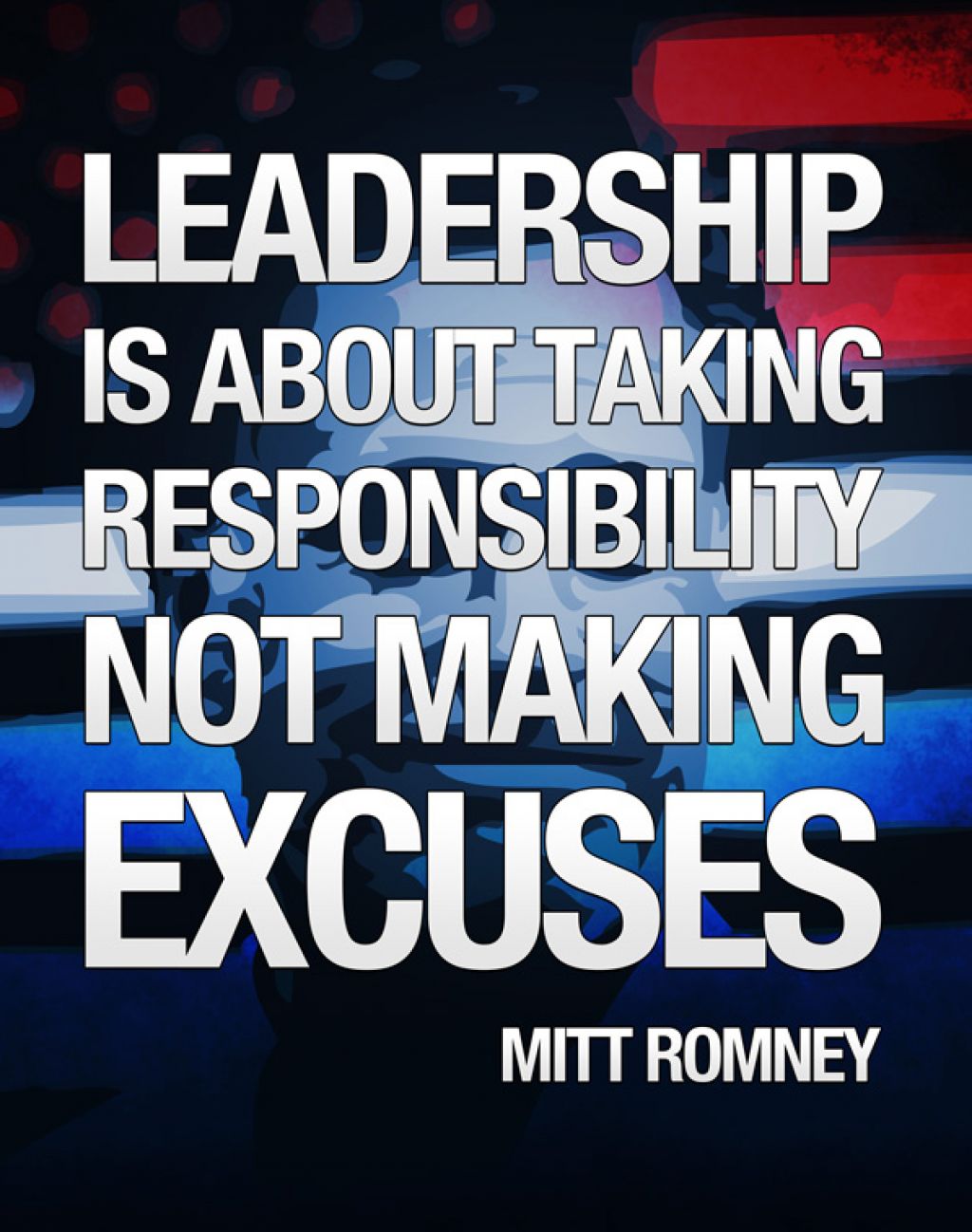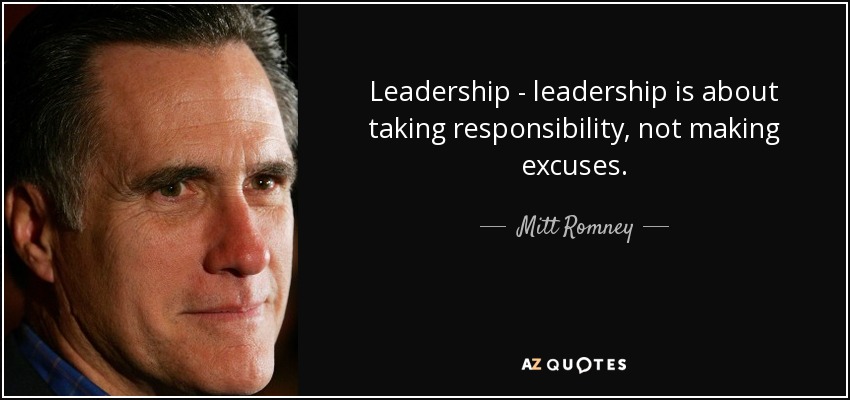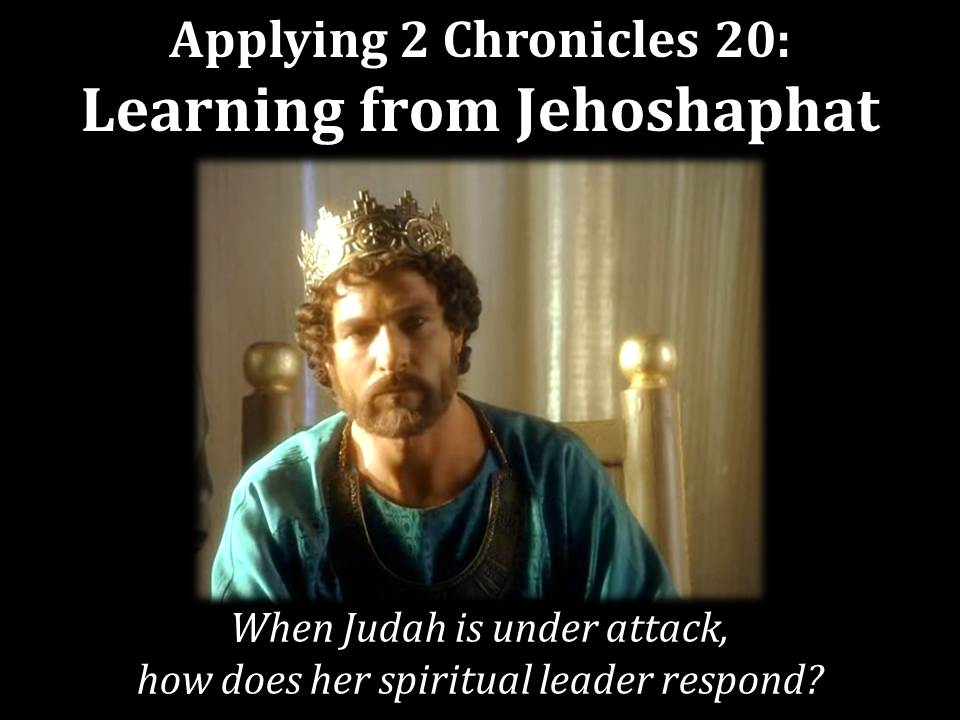Click here to return to Blog Post Intro
Leaders Cannot Give It Away
When Jehoshaphat became king of Judah, he assumed a trust. Like all kings, he was to lead the people, protect the people, and manage the resources of the nation.
2 Chronicles 20 records his greatest challenge to that point in his leadership. An army from three countries laid plans to attack Judah. Reports of their activity frightened the king (2 Chr. 20:3). No doubt, he faced the same options we all face in a crisis: give up, back up, or stand up. At such times we find out the quality of our leadership:
- The dropouts: Leaders who give up and fail to take responsibility.
- The cop-outs: Leaders who make excuses for why they aren’t responsible.
- The hold-outs: Leaders who waiver too long to take responsibility.
- The all-outs: Leaders who own the responsibility and take action.
What Steps Did Jehoshaphat Take?
Second Chronicles 20 provides us with a beautiful story of a human leader who did what was right. Consider the appropriate steps he took:
- He fought his fear (v. 2-3). Jehoshaphat was terrified, but he didn’t let it paralyze him. He stayed calm enough to think.
- He sought the Lord (v. 3,6-13). Before he did anything else, he sought perspective by praying and seeking wisdom from God.
- He brought the synergy (v. 3-4). He didn’t act alone, but gathered the people to inform them of the issue.
- He caught the vision (v. 14-17). He listened to the voice of the Lord until he knew what to do.
- He bought the idea (v. 18-19). He bowed his head and began to embrace the steps he and his nation had to take.
- He taught the plan (v. 20-23). He assembled the key players and gave them instructions on what each had to do.
- He got the victory (v. 24-=25). He followed through with precision and succeeded, just as God predicted.
Pontius Pilate Failed to Lead
Pontius Pilate, the Roman governor of Israel, gives us a sad example of a leader who failed to take responsibility.
When Jesus appeared before him for judgment, he could find nothing wrong with Him. Yet instead judging Him as innocent, he succumbed to the pressure of the crowd. Sensing they wanted to punish an innocent man, he gave them a choice: Barabbas or Jesus? When they wrongly chose Jesus as the more guilty man, Pilate walked over to a basin of water and tried to wash his hands of any responsibility for his decision. He pretended he could evade ownership of the consequences. Pilate committed the sin of omission and tried to get off on a legal technicality.
None of this surprised the Jews, since Pilate had a history of such behavior. He tended withdraw whenever things heated up. Once he put the Roman eagle in the temple prompting 5,000 Jews to march to his vacation home to demand he remove it. He called in the army and demanded they leave. When they refused, he threatened to cut off their heads. The Jews got down on their knees, in essence saying, “Go ahead!” Shocked by their moral conviction, he backed down. From that point on, the Jews knew this man lacked a backbone and would run from responsibility. He illustrates moral and political compromise.
Just why did Pilate “wash his hands” of responsibility?
- He had a problem with foundations (Matthew 27:22). Pilate never forged the character to withstand adversity. Conflict paralyzed him.
- He had a problem with futility (Matthew 27:23-24). He perceived that no good would come from a right decision, so why waste time? Apathy proliferates when we sense that action seems useless.
- He had a problem with fear (Matthew 27:24). Pilate felt preoccupied with survival. If he fought the Jews, he feared the loss of control, image, or position. His wife’s warning added fuel to his fear.
- He had a problem with failure (Matthew 27:24). Pilate knew a riot was brewing. The last time it happened, he failed to rise to the occasion and the Jews called his bluff. They knew he worried more about failure than ley did.
- He had a problem with focus (Matthew 27:24). Leaders cannot be neutral or passive over crucial decisions. Pilate picked up a basin and tried to wash his hands of the whole mess. No good leader does this.
May you take responsibility—for not only the successes but also the failures of your team—as you shoot for the stars!




